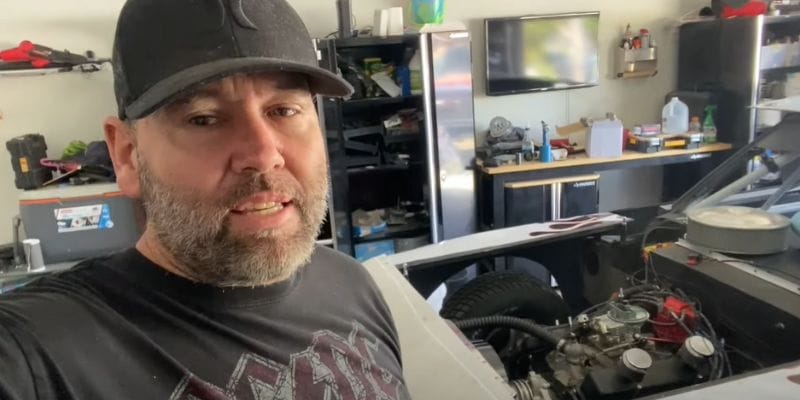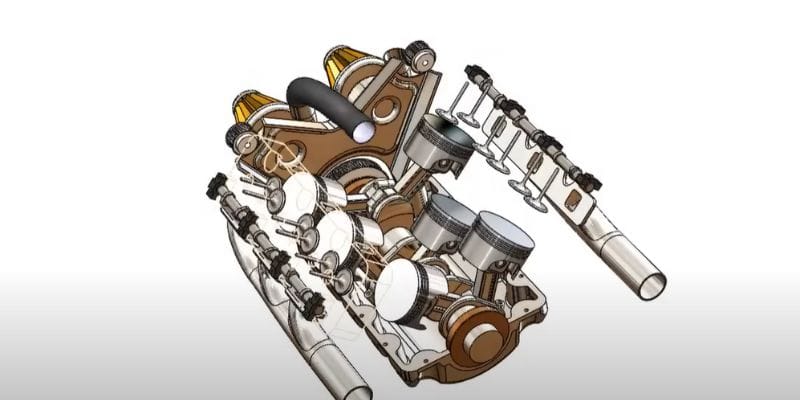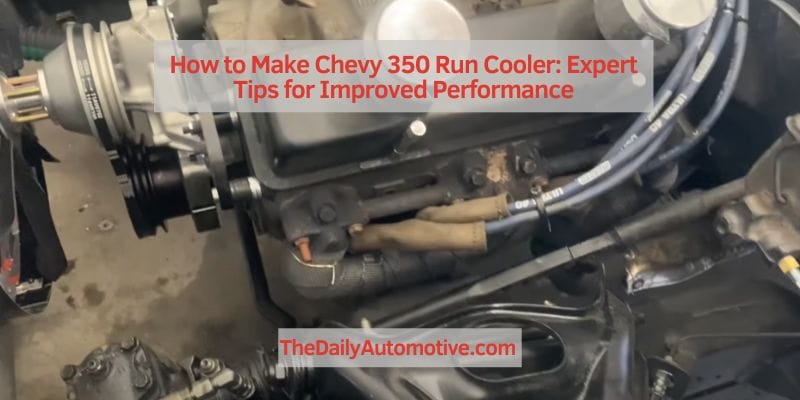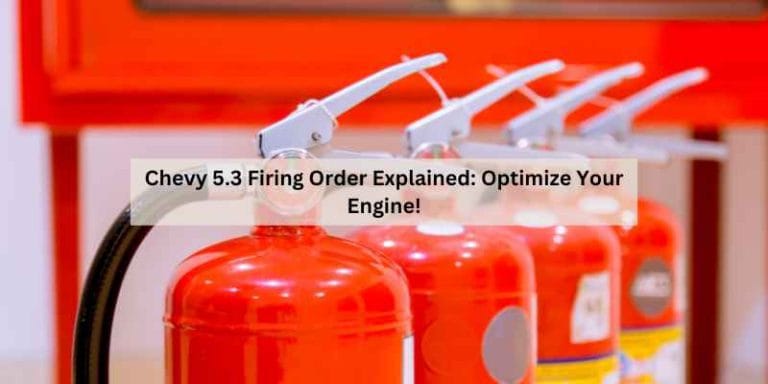How to Make Chevy 350 Run Cooler: Expert Tips for Improved Performance
To Make a Chevy 350 Run Cooler, install a high-performance aluminum radiator and consider upgrading the cooling system. Thoroughly cleaning the cooling fins and ensuring proper airflow will also help to improve the engine’s cooling efficiency.
When it comes to maintaining your Chevy 350’s optimal operating temperature, it’s crucial to consider various factors that contribute to the engine’s temperature control. The Chevy 350 engine is known for its power and reliability, but it can also be prone to overheating, especially in high-performance applications.
To keep the engine running cooler and more efficiently, it’s important to implement some key strategies to enhance the cooling system. By following these steps, you can ensure that your Chevy 350 runs at the ideal temperature, reducing the risk of overheating and potential engine damage.
Key Factors For Overheating
If you want your Chevy 350 to run cooler, understanding the key factors for overheating is crucial. By addressing these factors, you can ensure that your engine operates at a safe and optimal temperature, preventing damage and improving performance. In this guide, we’ll cover the cooling system overview and common issues causing overheating, providing you with the insights you need to keep your Chevy 350 running smoothly.
Cooling System Overview
Before delving into the common issues causing overheating, it’s essential to understand the cooling system of your Chevy 350. The cooling system consists of various components working together to regulate the engine’s temperature and dissipate heat. These components include the radiator, water pump, thermostat, cooling fans, and coolant. A well-maintained and properly functioning cooling system is vital for preventing overheating and ensuring your engine’s longevity. Regular inspection and maintenance of these components are necessary to keep the cooling system in top condition.

Common Issues Causing Overheating
Several common issues can lead to overheating in a Chevy 350. Addressing these issues promptly is crucial to prevent damage to the engine. Here are the key factors to consider:
- 1. Coolant Leaks: Leaks in the cooling system can lead to a loss of coolant, resulting in overheating. Check for leaks in hoses, radiator, water pump, and other components. Repair any leaks immediately to prevent overheating.
- 2. Faulty Thermostat: A malfunctioning thermostat can cause the engine to overheat by disrupting the coolant flow. Ensure the thermostat is functioning properly and replace it if necessary.
- 3. Clogged Radiator: A clogged radiator hinders the proper flow of coolant, leading to overheating. Regularly flush the radiator and ensure it is clean and free from debris.
- 4. Inadequate Coolant: Insufficient coolant levels can cause the engine to overheat. Check the coolant level regularly and top it up as needed with the recommended coolant type.
- 5. Faulty Cooling Fans: Malfunctioning cooling fans can result in inadequate airflow through the radiator, leading to overheating. Test the cooling fans and replace them if they are not functioning correctly.
Efficient Cooling System Upgrades
Maintaining the optimal temperature of your Chevy 350 engine is crucial for its performance and longevity. Efficient cooling system upgrades play a vital role in achieving this goal. By investing in upgraded components, you can ensure that your engine runs cooler, which, in turn, can lead to improved overall performance and reduced wear and tear.
Upgraded Radiator
One of the primary components of a cooling system upgrade is the radiator. Upgrading to a larger capacity or high-performance aluminum radiator can significantly improve the heat dissipation capacity. These radiators often feature increased cooling tube surface area and improved air flow, allowing for better heat transfer. Additionally, the use of a higher quality radiator can help prevent potential overheating issues, particularly during heavy-duty or high-performance driving conditions.
High-flow Water Pump
An essential element of efficient engine cooling is the water pump. Upgrading to a high-flow water pump enhances the coolant circulation, leading to improved overall cooling efficiency. These pumps are designed to deliver a higher volume of coolant flow, ensuring that the engine maintains a stable operating temperature even under demanding conditions. By incorporating a high-flow water pump into your cooling system upgrade, you can effectively mitigate the risk of overheating and maintain consistent engine performance.
Electric Cooling Fans
Integrating electric cooling fans into your cooling system upgrade can further enhance the thermal management of your Chevy 350 engine. Electric fans are known for their ability to provide targeted cooling, especially during idle or low-speed driving. These fans can be controlled more precisely and engage only when necessary, reducing the load on the engine and increasing the overall cooling efficiency. Additionally, electric fans offer flexibility in installation and can be positioned to maximize airflow, contributing to improved heat dissipation.
Optimizing Airflow And Heat Dissipation
Optimizing Airflow and Heat Dissipation is crucial for effectively managing the temperature of a Chevy 350 engine. By upgrading components and implementing proper installation techniques, you can significantly improve the engine’s ability to run cooler, enhancing its performance and longevity.
Upgraded Thermostat
Installing an upgraded thermostat is a fundamental step in regulating the engine’s operating temperature. A high-quality thermostat with a lower opening temperature allows for better coolant circulation, helping maintain the optimal engine temperature. This upgrade minimizes the risk of overheating and promotes efficient performance.
Proper Fan Shroud Installation
Proper fan shroud installation ensures that the airflow generated by the fan is effectively directed through the radiator. By sealing the gap between the fan and the radiator, a fan shroud facilitates improved coolant and air circulation, aiding in heat dissipation. Additionally, using a fan shroud optimizes the fan’s efficiency, reducing the risk of overheating and enhancing overall cooling capabilities.
Air Flow Management Tips
Implementing air flow management tips can further enhance the cooling efficiency of the Chevy 350 engine. This includes ensuring that the radiator is unobstructed and free from debris, optimizing the air intake system, and maximizing the use of airflow-enhancing components such as air scoops and vents. By paying attention to these details, you can significantly improve heat dissipation and promote better engine performance.
Enhanced Engine Performance For Cooling
Improving the cooling system for a Chevy 350 engine is crucial for optimizing its performance and longevity. Several factors contribute to the engine’s ability to run cooler, including tuning and timing adjustments, the impact of exhaust systems, and the quality of oil and coolant. Focusing on these areas can help ensure that the engine operates at an optimal temperature, resulting in improved overall performance.
Tuning And Timing Adjustments
Proper tuning and timing adjustments play a critical role in helping the Chevy 350 engine run cooler. Optimizing the air/fuel mixture and fine-tuning the ignition timing can significantly impact the engine’s temperature. Advanced ignition timing can result in a more efficient combustion process, reducing heat generation and ultimately lowering the engine’s overall operating temperature.
Impact Of Exhaust Systems
The exhaust system also has a considerable impact on the engine’s cooling capabilities. Investing in a high-performance exhaust system can facilitate better airflow, enabling the engine to expel hot gases more efficiently. This not only reduces heat buildup within the engine but also enhances the overall exhaust and cooling system performance.
Oil And Coolant Quality
The quality of the oil and coolant used in the engine can significantly affect its cooling efficiency. Using high-quality synthetic oil with excellent heat dissipation properties can help keep the engine cooler under heavy load conditions. Additionally, ensuring the coolant is clean and at the correct concentration can further enhance the engine’s ability to dissipate heat effectively.
Regular Maintenance And Monitoring
Regular maintenance and monitoring are essential for keeping your Chevy 350 running at optimal temperatures and preventing overheating issues. By performing routine checks and following preventive maintenance tips, you can ensure that your engine stays cool under all operating conditions. Let’s take a closer look at the key areas of regular maintenance and monitoring to help your Chevy 350 run cooler.
Coolant Flush And Refill
Regular coolant flushes and refills are crucial for maintaining the cooling system’s efficiency. Over time, coolant can become contaminated with dirt, rust, and other debris, leading to reduced heat transfer and potential overheating. Follow the manufacturer’s recommended intervals for flushing the coolant system and replenishing it with fresh, clean coolant. By maintaining the proper coolant level and quality, you can help dissipate excess heat and keep the engine running cooler.

Monitoring Temperature Gauges
Frequently monitor the temperature gauges on your Chevy 350 to detect any anomalies in engine temperature. An overheating engine can cause significant damage if not addressed promptly. Keep an eye on the temperature gauge while driving and during idle periods to ensure that the engine operates within the recommended temperature range. Additionally, consider installing aftermarket temperature gauges to provide more precise temperature readings and early warnings of potential cooling system issues.
Preventive Maintenance Tips
Implementing preventive maintenance tips such as checking for leaks, inspecting hoses and belts for wear, and ensuring proper radiator airflow can significantly contribute to maintaining a cooler-running engine. Regularly inspect the cooling system components for signs of wear and damage, and address any issues promptly to prevent potential overheating. Additionally, maintaining clean air filters and ensuring proper engine timing and air/fuel mixture can help optimize engine performance and reduce the risk of overheating.
Frequently Asked Questions Of How To Make Chevy 350 Run Cooler
How Can I Improve Cooling For My Chevy 350 Engine?
To improve cooling for your Chevy 350 engine, consider upgrading the radiator, using a high-flow water pump, installing an electric cooling fan, and ensuring proper airflow to the radiator. Additionally, using a high-quality coolant and maintaining regular maintenance can help to keep the engine running cooler.
What Are The Benefits Of Running A Chevy 350 Cooler?
Running a Chevy 350 cooler can improve engine performance and longevity by reducing the risk of overheating, minimizing thermal stress on engine components, and enhancing overall efficiency. Keeping the engine cooler can also contribute to better fuel economy and reduced emissions.
How Do I Choose The Right Radiator For My Chevy 350?
When selecting a radiator for your Chevy 350, consider factors such as core thickness, material construction, and overall design. A radiator with adequate cooling capacity, efficient heat dissipation, and compatibility with your engine’s cooling system is essential for optimal performance and temperature control.
Conclusion
Implementing the right cooling strategies for your Chevy 350 engine can significantly enhance its performance and longevity. By prioritizing regular maintenance, upgrading your cooling system, and incorporating effective cooling additives, you can ensure that your engine runs cooler and more efficiently, providing you with enhanced driving experiences.







